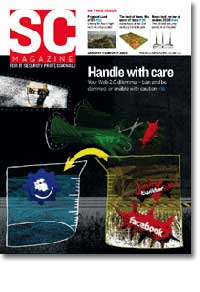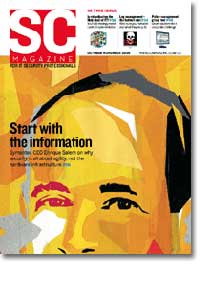
Social networking can cause problems in the workplace, but there are solutions
- Article 19 of 33
- SC Magazine, December 2009
A blanket ban on social networking sites at work will annoy Generation Y - without being effective. There are solutions, says Rob Buckley
Page 1 | Page 2 | Page 3 | Page 4 | Page 5 | Page 6 | All 6 Pages
The headlines seem to confirm every employer's prejudices: “Twitter costs businesses £1.4bn” and “Facebook scandal – 233 million hours lost monthly as employees ‘waste time' on social networking”. Even the BBC advertises its Twitter and Facebook presence with “Say goodbye to worktime boredom”.
It would appear that the use by employees of social networking and Web 2.0 in the workplace is, in reality, an excuse for them not to work – or, worse still, to get jobs elsewhere.
For IS professionals, there's the constant fear that social networking is going to be a fresh way for malware to enter the enterprise. It's no surprise, says research by web filtering company Bloxx, that over 90 per cent of IT professionals from UK public and private organisations believe access to social networking websites should be restricted or banned.
Yet many security experts think this could be a mistake. “There are two sides to Web 2.0,” says Candid Wueest, senior security researcher at Symantec. “There's nice integration with customers and it can be used as a fast information source.”
Paul Judd, UK regional director at Fortinet, also thinks Web 2.0 is useful to businesses. “There are always those who abuse privileges, but Facebook and other Web 2.0 tools are really powerful. LinkedIn is a staple of my business.”
Taking a look at that headline figure, what would the average employee be doing with those 40 minutes a day they're spending on Web 2.0 if access were banned? Would they be working? Or would they be talking to colleagues around the water cooler, emailing friends, out on cigarette breaks, using their smartphones to access Facebook, or feeling disenchanted with their employers for making them work late and not allowing them to tell their friends? They could even be working on their CV in Word. But if they're at their computer, they could at least be working at the same time in a different window.
Gartner analyst Monica Basso recommends that companies look at social networking both as a tool for the business, and also as a way to retain Generation Y employees. “Digital natives – today's younger generations who speak natively the language of computers, mobiles, video games and the internet – are protagonists for massive technology adoption and a consequent adaptation of human behaviours,” says Basso. “Future generations will drive change in workplaces and worker behaviour, attitudes, skills and styles. Organisations will need to adapt HR programmes and management styles accordingly.”
Generation Y, accustomed to the speed of Twitter, looks on email as slow. For many, YouTube isn't just a source of comedy videos: it's also a wealth of product demos and seminars to help improve performance and knowledge. Personal and work boundaries can blur, so a tool that's useful for work can be useful for personal life and vice versa.
The social networks of Facebook and LinkedIn can be valuable business assets and banning them would look as odd to some as banning email. “If I was a sales guy joining a bank, say,” says Chris Batten, MD of Acumin, “I would expect LinkedIn to be a tool I could use for networking. If it was blocked, I would perceive that as narrow-minded.”
Ari Juels, director of RSA Laboratories, says employees who find a tool useful enough will simply work out a way round most security measures. “They'll come up with more devious and dangerous ways of getting what they want. If they work from home via a VPN, they'll turn it off. They might fire up a VM on their laptop or use proxy servers. People get very creative.” Such measures inevitably bypass security systems, a greater risk than access to the sites would create.
Page 1 | Page 2 | Page 3 | Page 4 | Page 5 | Page 6 | All 6 Pages


